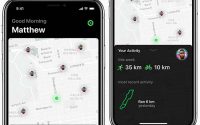8 Mobile App Strategies for Increased Sales
Brett Relander
Editor’s Note: In addition to the strategies outlined below, a mobile app messaging strategy is essential for the long-term success of an app. Building the right balance of push notifications mixed with in-app messaging is where many brands go wrong — and lose their app users. Don’t fall victim to the messaging woes of mobile with Sailthru’s Ultimate Best Practice Guide to Mobile Messaging and Engagement.
Mobile apps can add serious dollars to your business’s bottom line. Forward-thinking business owners and marketers the world-over are already doing so, and you don’t have to be a big brand to have an app. Even the smallest business can have its own mobile app quickly, easily, affordably, and so it should: The number of people using mobile devices, smartphones and tablets to research and shop continues to increase. In fact, according to a 2017 comScore study, the number one app among millenials (people aged 18-34) is retail-based: 35% named Amazon as the essential app they can’t live without. Moreover, businesses that have incorporated apps in their sales and marketing processes are reporting increased sales and improved process efficiency, as well.
- Create convenience. Both online and offline businesses, in sectors ranging from hospitality to consumer products, are generating sales by enabling buyers to browse products and place orders via mobile phones and tablets. Mobile phones are also being used to book restaurant reservations, buy tickets for sporting events and shows, sell music and more. Convenience is the name of the game, and having your brand in the palm of your customer’s hand is the essence of convenience.
- Capture mindshare. Studies show that a person’s ability to retain information is decreasing, primarily due to the fact that we have instant access to information and less need to rely on memory. In a noisy and competitive marketplace, this is bad news for businesses with poor digital footprints—that is, those without simple and easy access to their businesses. For example, I may love a restaurant, but without enough frequent impressions of their brand, I will forget them. But a mobile app could save the day by reminding me who they are and why I love them, and providing me with frequent reasons to go back. Remember, mindshare = walletshare.
- Celebrate new arrivals. Businesses use mobile apps to announce new arrivals, discounts and sales on products or services. Push notifications are fast becoming a part of every online marketer’s arsenal and are completely free for app owners. Further, mobile coupons/promotions are redeemed at 10 times the rate of traditional coupons!
- Build community. Mobile apps can create a mobile community for a business. Offer your mobile community privileges, like first access to deals, limited-time discounts, exclusive content, and new releases, to build loyalty with your customers and provide incentives to join your community.
One of the most striking features of mobile apps is that you’re limited only by your own creativity. They can be of general use for your business, or specific to an element of your business. For example, Macy’s uses an app, created by Shopkick Inc. of Redwood City, CA, to offer discounts on products that a person may be interested in, based on her responsiveness to its display. The concept, already in use for online shopping, now has a parallel in real-world shopping, too. Mobile apps contribute to increasing profitability in diverse ways—from increases in forecast accuracy and first-time sales, to decreases in redundant activities and administrative time.
Source
https://www.sailthru.com/marketing-blog/written-8-mobile-app-strategies-increased-sales/


